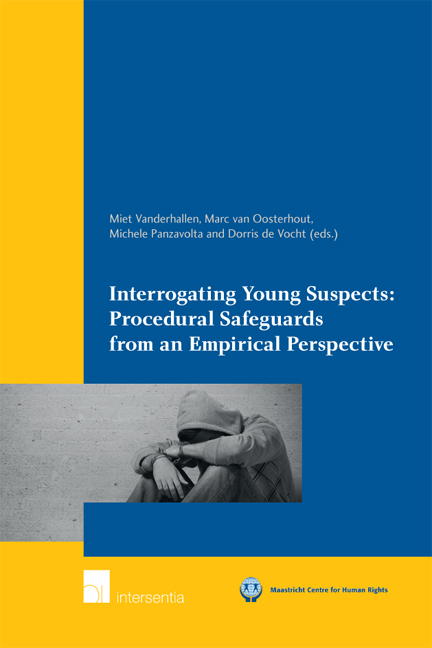Book contents
- Frontmatter
- Preface and Acknowledgements
- Contents
- List of Abbreviations
- Biographies
- Chapter 1 Introduction
- Chapter 2 Research Methodology
- Chapter 3 Belgium: Empirical Findings
- Chapter 4 England and Wales: Empirical Findings
- Chapter 5 Italy: Empirical Findings
- Chapter 6 The Netherlands: Empirical Findings
- Chapter 7 Poland: Empirical Findings
- Chapter 8 Integrated Analysis
- Chapter 9 The Guidelines
- Annexes
- Maastricht Series in Human Rights
Chapter 7 - Poland: Empirical Findings
Published online by Cambridge University Press: 21 September 2018
- Frontmatter
- Preface and Acknowledgements
- Contents
- List of Abbreviations
- Biographies
- Chapter 1 Introduction
- Chapter 2 Research Methodology
- Chapter 3 Belgium: Empirical Findings
- Chapter 4 England and Wales: Empirical Findings
- Chapter 5 Italy: Empirical Findings
- Chapter 6 The Netherlands: Empirical Findings
- Chapter 7 Poland: Empirical Findings
- Chapter 8 Integrated Analysis
- Chapter 9 The Guidelines
- Annexes
- Maastricht Series in Human Rights
Summary
INTRODUCTION
In Poland there is an increasing amount of literature on the interrogation of child witnesses. Forensic scientists commonly share the opinion that interrogating a child witness is one of the most difficult tasks in the course of criminal proceedings and for this reason special interrogation techniques, such as techniques of cognitive interview, are recommended. Recent amendments to the Code of Criminal Procedure aimed at enhanced protection of child witnesses, and particularly child victims in criminal proceedings contributed to numerous publications on special conditions of interrogating child witnesses. These include special qualifications for interrogators in order to minimise disorders of memory processes and to avoid negative effects of stressful situations connected with the interrogation. However, research focusing on the practice of interrogating of child witnesses is very limited. With respect to the interrogation of juvenile suspects it should be stated that this has been neglected in Polish forensic science. The few existing publications on the interrogation of juvenile suspects are mainly focused on the analysis of legal provisions regulating such actions taken by the police and by the courts. As a result, little is known about the practice of interrogating juvenile suspects in Poland.
This chapter will discuss the practice of interrogating young suspects in Poland based upon empirical findings. Three focus group interviews were carried out with police officers, juvenile boys and juvenile girls. Two individual interviews with lawyers were conducted and 20 written records of police interrogations with young suspects by the police were analysed. It should be noted that the results presented in this chapter reflect the practice of interrogating juveniles before the change in juvenile law which came into force on 2 January 2014.
The focus group with police officers was limited to four officers working in the unit for juveniles in a major city. Participants were male with one exception and all had experience in the interrogation of juveniles suspected of committing criminal offences. The focus groups with juveniles consisted of one with girls and one with boys. Eight girls participated, of which only one was 17 years old and the other girls were 18 or 19 years old, but had been interrogated as juveniles. The focus group interview took place in one of the three correctional institutions for girls in Poland.
- Type
- Chapter
- Information
- Interrogating Young Suspects IIProcedural Safeguards from an Empirical Perspective, pp. 267 - 304Publisher: IntersentiaPrint publication year: 2016



